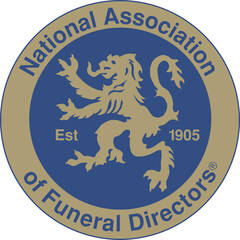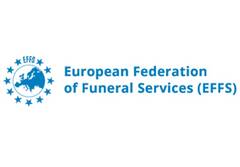How To Get Help with Bereavement Counselling

Grieving is a natural response after the death of a loved one and for many people the support of family and friends is all that is needed. However, if you feel you may require professional support, how do you go about finding help with bereavement counselling?
Bereavement is personal and unique to every individual and their experiences of grief and hence the ways people cope can be very different. This article is aimed at highlighting information about the signs and symptoms of bereavement helping you to recognise when professional support may be required for yourself or for a loved one. We also give details of some of the organisations and charities that are free and available to access as an additional layer of support.
One of our main roles for families in our care is as a gateway to bereavement services; signposting individuals to local charities and groups that are equipped to provide bereavement support. Our Funeral Teams in addition have a wealth of experience with guiding families in this field and colleagues in our funeral homes are always on hand and happy to help further with bereavement support and guidance.
Signs and symptoms of bereavement
The bereavement process can affect us both physically and mentally. Finding support through bereavement counselling can help you to work towards some form of closure and to assist the healing process. There are many signs and symptoms that may arise before, during and after the death of a loved one, these can include difficulty sleeping, anxiety, depression, shock, numbness, increased susceptibility to illness, loss of appetite and depression. You may also be filled with overwhelming sadness, or you may have feelings of guilt. Each and every one of these symptoms are both valid and to be expected.
Cruse Bereavement Support – You’re not alone
Cruse helps people through one of the most painful times in their life. They strive to ensure everyone who is grieving gets the support they need, when they need it. Cruse has been helping people with grief and bereavement for over 60 years and today has a dedicated team of 4,000 specially trained bereavement volunteers.
Sue Ryder – Online bereavement support
Sue Ryder makes it easy for you to connect with the right support whether that is information and resources, qualified counsellors, or a community of others with similar experiences.
The UK Government – Bereavement help and support
The government provides links to organisations that can help with bereavement counselling, where you can find support and information. The site reiterates that bereavement, grief, and loss can cause many different symptoms and affect people in different ways. It also details the five stages of bereavement or grief as identified by experts: denial, anger, depression, bargaining and acceptance.
National Bereavement Partnership (NBP) – Facing loss together.
The NBP’s aim is to support those struggling from mental health issues and the impact of bereavement and living loss. The National Bereavement Partnership provides a support helpline and offers a befriending and counselling referral service. Their highly skilled professionals have a deep understanding of grief, loss and the very real anxiety associated with it.
The Compassionate Friends (TCF) – Supporting bereaved parents and their families.
The TCF is a charitable organisation of bereaved parents, siblings, and grandparents, which is dedicated to the support and care of other similarly bereaved family members who have suffered the death of a child or children of any age and from any cause. Compassionate Friends offers support to both bereaved parents and siblings.
The Good Grief Trust – Help and hope in one place.
The Good Grief Trust is run by the bereaved for the bereaved and is there to offer all the advice and support you need today and help you to move forward with life tomorrow. They maintain that grief can be complicated, but access to support should never be. Help is available to those who have lost a child, partner, parent, sibling, or friend. It’s there for the older generation and for young people. It offers articles, videos, and advice from those who have found new hope and now feel ready to find new love, a new life and purpose to move forward with their lives.
AtaLoss – Helping bereaved people find support & wellbeing
AtaLoss offers help with bereavement counselling and has the vision that no bereaved person in the UK should be left floundering or alone and unable to find support when they need it. It has a national signposting website with everything in one, a trusted place, which signposts you easily to support from national, specialist and local services with reliable information, resources, and emergency support. AtaLoss runs an online bereavement support programme called The Bereavement Journey, which is five weeks long with an optional sixth week.
Child Death Helpline – We’re here to listen
This helpline offers to help when you are ready to talk concerning the loss of a child. It was established in 1989 and started by volunteers, all of them bereaved parents. It is open to parents, grandparents, siblings, other family members, friends or involved professionals. Callers to the Child Death Helpline can talk openly in a confidential, safe environment and can express their worries and emotions.
The Lullaby Trust – Emotional support for bereaved families
The Lullaby Trust offers confidential bereavement support to anyone affected by the sudden and unexpected death of a baby or young child. They offer a range of services:
- Bereavement support helpline
- Facebook bereavement support group
- Care of Next Infant (CONI)
- Grief Chat
- Family Days
- Befrienders
Barnardo’s – Child bereavement support
Barnardo’s offers advice and support to parents and carers of children and young people up to the age of 18 years who have been bereaved. Thy offer help with bereavement counselling, as well as group work and individual therapy.
Winston’s Wish
Winston’s Wish support children after the death of someone important. We work closely with them and admire their knowledge and expertise in this area.
Rosie Crane Trust – Supporting Bereaved Parents
The trust supports bereaved parents. The mother of Rosie Crane started it in 2006, two years after her daughter had died at the age of 23 as a result of developing leukaemia. The Rosie Crane Trust provides a number of services including:
- Listening Ear Helpline
- Drop-in Centres
- Befriending Service
- Subsidised Counselling
- Professional Referral
Sands – Saving babies’ lives and supporting bereaved families
If you have been affected by the death of a baby, Sands is there to support you. They understand how devastating the loss of a baby can be and that everyone grieves in different ways. Some are happy to talk whereas other bereaved families may take comfort from reading about the experiences of others. And meeting face to face may work for some people.
Survivors of Bereavement by Suicide (SoBS) – Together we can help each other.
If you need help with bereavement counselling, SoBS was set up to meet the needs and overcome the isolation experienced by people over the age of 18 who have been bereaved by suicide. SoBS is a self-help organisation, providing a safe, confidential environment in which bereaved people can share their experiences and feelings, so giving and gaining support from each other.
The National Health Service (NHS)
The NHS suggests that you try talking about your feelings to a friend, family member, health professional or counsellor, or you could contact a support agency. The site lists Dos and Don’ts. It has a link if you are struggling to sleep and recommends that you might consider peer support from Mind.
The NHS reiterates that most people feel grief after the death of a loved one and so it’s important not to feel that you are alone as support is available.
Please note that this is not a definitive guide, and we will be happy to add your trust or organisation if you send the details.
How can CPJ Field help with bereavement counselling?
Bereavement is very personal, and it can be unpredictable. Try to engage with your support networks including family, friends, and neighbours. However, if you do feel alone and are experiencing some of the symptoms of bereavement, suffering in silence can lead to feelings of greater loss and sadness. Do reach out to a support network. Your CPJ Field funeral director will be able to assist you in finding the groups that are local to you. We also have guides to assist you further.





